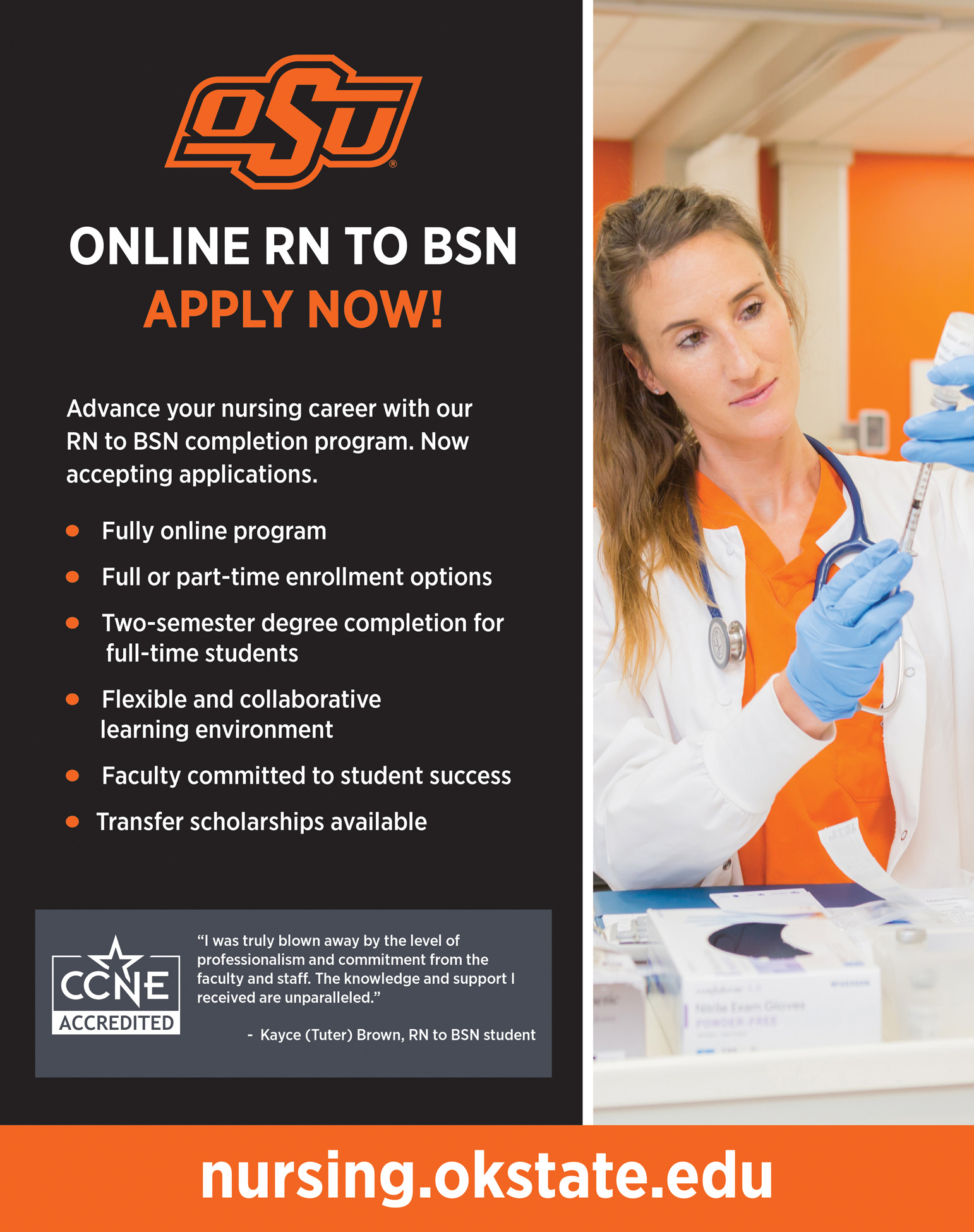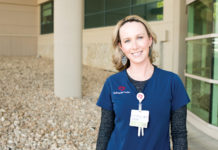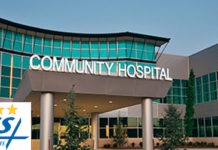Already an experienced nurse, Verena Turner is furthering her career in public health by pursuing her bachelor’s degree in nursing through OSU’s online RN to BSN completion program.
Her passion for serving patients who need her most has been elevated amid the coronavirus pandemic. Turner, who is typically a nurse in a neurology intensive care unit (ICU), transitioned to caring solely for coronavirus patients over the last several months. The day-to-day patient care is an opportunity to apply her coursework.
“I love being a nurse, although I wouldn’t say being a COVID nurse was my goal for this year,” Turner said. “Seeing these patients recover, getting text messages and cards and emails from families of patients we’ve seen at the absolute worst and not knowing if we’re going to keep them alive makes it all worth it.”
Due to isolation restrictions, Turner said she may be the only person her COVID patients see for 13 hours. She endures layers of uncomfortable personal protective equipment (PPE) to spend extra time with the patients.
“Our patients a lot of the time are intubated and sedated, but they know there’s somebody there,” Turner said. “This has definitely opened my eyes that nurses have a really big impact.”
Serving in a COVID care unit builds on Turner’s past work as a licensed professional nurse on a surgical floor and more recently in the ICU. Not only does she apply hands-on experiences from working full time to her coursework, but she also learns from classmates who are working in diverse healthcare environments.
Dr. Mary Malaska, OSU RN to BSN program coordinator, said the OSU curriculum, which consists of eight nursing classes and two health classes, is specifically designed to enhance nurses’ professional skills.
“Students expand their professional nursing lens from the practical, foundational skills they learned to become a registered nurse,” Malaska said. “Our coursework provides higher level thinking that teaches the ‘why’ behind their past education.”
Students are challenged with topics ranging from leadership and goal-setting, to public health policy and nursing theory. During the COVID pandemic, the epidemiology course has been especially applicable.
“Factors like causation, testing and data analysis are key tenets of the course,” Malaska said. “Their application now in a global pandemic just underscores the relevance of our program.”
Balancing COVID nursing responsibilities with classwork has certainly not been easy. Some OSU RN to BSN students working in COVID units travel to as many as four healthcare facilities in one metropolitan area tending to patients, in addition to managing coursework and responsibilities at home.
Malaska is working with Dr. Alana Cluck, RN to BSN clinical faculty, to study the impact of COVID on nurses’ mental health. While respondents reported positive aspects, like spending more time with family due to canceled personal events, they also reported increased stress.
“Many nurses feel like they are placed in impossible situations, having to decide which patient to tend to first when two patients are crashing at the same time,” Malaska said. “This isn’t a decision nurses usually have to make.”
Oklahoma State nursing faculty understand that stress, and they are committed to supporting their students academically and professionally. As the world continues to social distance in order to combat the spread of coronavirus, nursing faculty have remained connected to students through weekly video updates and discussion boards.
This is part of a culture of support Turner observed even before the COVID pandemic, something she is thankful for as a full-time working mom. The 100-percent online program also added flexibility.
“My professors realize we’re all in this together and have been super flexible and supportive,” Turner said. “They even send emails checking to see if we’re safe and okay.”
For Turner, who expects to graduate in May 2021, the hands-on experience of caring for COVID patients during a pandemic as well as the healthcare applications learned from her RN to BSN program are preparing her to achieve her dreams.
“I think COVID is going to be something we’re dealing with for a long time,” Turner said. “The experience of working on a COVID floor, coupled with the higher-level concepts I am learning in the RN to BSN program, will shape my career.”
For this nurse – whether treating COVID patients or furthering her education – each task is a labor of love.
Visit: https://education.okstate.edu/














